How Drones Will Transform These 6 Industries
Once the government sets rules for commercial drone use in the U.S.—and it will, likely in the next year or two—business applications of drones will take off, literally.
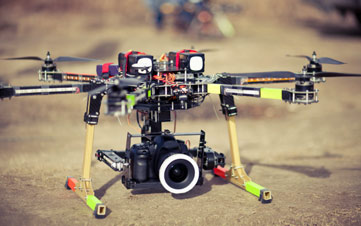
Profit and prosper with the best of Kiplinger's advice on investing, taxes, retirement, personal finance and much more. Delivered daily. Enter your email in the box and click Sign Me Up.
You are now subscribed
Your newsletter sign-up was successful
Want to add more newsletters?

Delivered daily
Kiplinger Today
Profit and prosper with the best of Kiplinger's advice on investing, taxes, retirement, personal finance and much more delivered daily. Smart money moves start here.

Sent five days a week
Kiplinger A Step Ahead
Get practical help to make better financial decisions in your everyday life, from spending to savings on top deals.

Delivered daily
Kiplinger Closing Bell
Get today's biggest financial and investing headlines delivered to your inbox every day the U.S. stock market is open.

Sent twice a week
Kiplinger Adviser Intel
Financial pros across the country share best practices and fresh tactics to preserve and grow your wealth.

Delivered weekly
Kiplinger Tax Tips
Trim your federal and state tax bills with practical tax-planning and tax-cutting strategies.

Sent twice a week
Kiplinger Retirement Tips
Your twice-a-week guide to planning and enjoying a financially secure and richly rewarding retirement

Sent bimonthly.
Kiplinger Adviser Angle
Insights for advisers, wealth managers and other financial professionals.

Sent twice a week
Kiplinger Investing Weekly
Your twice-a-week roundup of promising stocks, funds, companies and industries you should consider, ones you should avoid, and why.

Sent weekly for six weeks
Kiplinger Invest for Retirement
Your step-by-step six-part series on how to invest for retirement, from devising a successful strategy to exactly which investments to choose.
Once the government sets rules for commercial drone use in the U.S.—and it will, likely in the next year or two—business applications of drones will take off, literally. A variety of industries are planning to use lightweight, unmanned aircraft. That will pack a big economic wallop, creating thousands of jobs for drone operators, data analysts, mechanics and others. The Kiplinger Letter forecasts that this could be a $10 billion industry by 2025.
Just as in military applications, surveillance will be commercial drones’ first role. But as technology improves, drones will carry payloads that they can deliver (packages and pizza?) or distribute (pesticides and fire retardant).
The use of drones in civilian airspace will come with several restrictions, stemming from the Federal Aviation Administration’s concerns about privacy and interference with existing aircraft. Expect limits on who can fly drones, how many are allowed to fly in certain areas, the altitude at which they can fly, and the time of day they can operate.
But drones are coming. Look forward with us to six industries poised to change dramatically once regulatory hurdles are cleared.
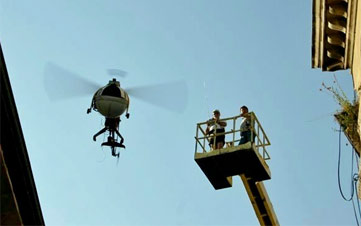
Movie Making
Hollywood is starry-eyed about using drones to replace expensive helicopter-based shots—or bring aerial scenes to small-budget movies. The Motion Picture Association has been lobbying the FAA to speed its approval of commercial drone use. Overseas, drones have already been used in filming, including for HBO’s “Game of Thrones” (shot in Iceland) and the upcoming disaster movie “Pompeii” (shot in Canada). “The Wolf of Wall Street,” filmed here in the U.S., used drone shots of a party at a beachfront estate, shot by a drone from FreeFly.
How excited is Tinseltown? The Academy of Motion Picture Arts and Sciences gave a British company, HoverCam, an Oscar this year for its development of the HeliCam, a turbine-powered remote-control helicopter that can loft a movie camera.
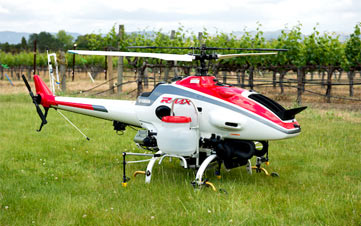
Agriculture
Farmers are eager to take to the skies to scout vast areas of crops for early signs of pests or stress. Plenty of drones already in military use could be adapted for this purpose. When larger drones are eventually certified, they will also deliver needed chemicals to the afflicted plants with precision targeting.
In Japan, where rice farming often involves steep slopes, Yamaha RMAX helicopters have been performing this role for decades. Here in the U.S., the University of California Davis has secured FAA permission to test the RMAX for spraying vineyards at its location in Oakville, Cal., and is also planning to test the device for monitoring almond trees.
Colorado-based Scion UAS is also developing a model that could swiftly be adapted by agribusinesses to scan crops and dust fields. At just under 7 feet tall and 19 feet long, the SA-400 Jackal, powered by a turbine, can carry 200 pounds and stay aloft for four hours.
Larger, payload-carrying drones like these will probably have to wait longer for FAA approval.
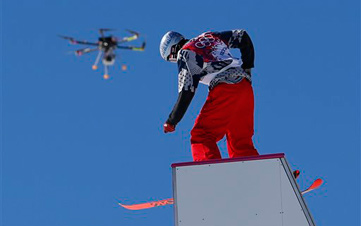
News Media
Like filmmakers, TV stations have long relied on helicopters for their most dramatic footage. (Remember O.J. Simpson’s white Bronco?) And they, too, are eager to lower the cost of placing eyes in the sky. Some journalists experimenting with small camera-equipped drones have already run afoul of the FAA’s ban on commercial usage and have received cease-and-desist orders.
Expect challenges from celebrities and others not eager for unwanted overhead media attention. But news gatherers won’t be shy. The Fresno Bee, for instance, recently acquired a small quadcopter drone to test. It’s called “ScoopyOne.”
Some of the Olympics footage you saw in Sochi, Russia, was captured by drone-based cameras for the Olympic Broadcasting Service. as seem above on the slopestyle course.
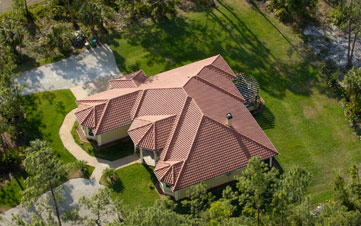
Real Estate Sales
If you’ve got a sprawling, majestic property for sale, what better way to show it off than with an aerial view? Real estate brokers are already testing house-hunter appeal, using drones to take photos and footage even though it is still technically illegal, even at low altitudes.
Small, lightweight drones such as those used for real-estate shots are likely to get more leeway from the FAA when it ultimately issues rules. The drones necessary for this use are just an evolution of the radio-controlled airplanes and helicopters hobbyists have flown for years.
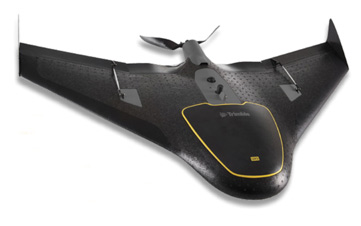
Surveying Land
Mapmaking and surveying have been revolutionized by technologies such as GPS and laser scanning. Drones will provide another step forward. By following a programmed track, they can mark precise GPS-derived locations on the imagery they collect, creating almost instant maps of areas that might be difficult or even dangerous to traverse. Energy firms, mining companies and real estate developers all might benefit from detailed mapping of areas they plan to dig in or build on.
Sunnyvale, Cal.-based Trimble Navigation has a winged drone, the UX5, that can follow GPS waypoints on a preset flight path to scan huge areas. The propeller-driven UAV can even fly in bad weather. Swiss firm SenseFly has a similar product, the eBee.
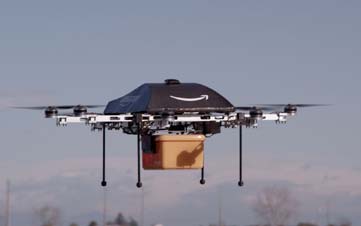
Home Delivery
Amazon.com CEO Jeff Bezos got all the publicity he was hoping for and more when he unveiled Amazon Prime Air, with a video showing a small drone taking a package from a warehouse to a customer’s front door. In a “60 Minutes” interview, Bezos acknowledged that the idea was “some number of years” away.
Other companies have proposed drone delivery of tacos, pizza and beer—again, with videos and PR stunts.
Such endeavors are going to be up against a skeptical FAA, which is likely to be most wary of drones operating in densely populated urban areas—exactly where Amazon would want to take its products.
Brendan Schulman, a lawyer who heads the unmanned aircraft systems group at the law firm Kramer Levin, is bullish on the idea of drones one day delivering some services. But he concedes that the first unmanned vehicle to bring a package to your home might well be an autonomously driven car, which wouldn’t be hampered by heavy payloads, or, for that matter, trees.
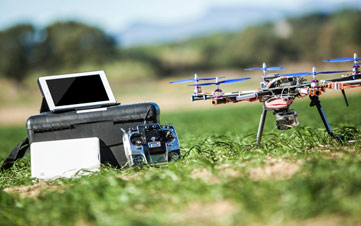
Profit and prosper with the best of Kiplinger's advice on investing, taxes, retirement, personal finance and much more. Delivered daily. Enter your email in the box and click Sign Me Up.

In his former role as Senior Online Editor, David edited and wrote a wide range of content for Kiplinger.com. With more than 20 years of experience with Kiplinger, David worked on numerous Kiplinger publications, including The Kiplinger Letter and Kiplinger’s Personal Finance magazine. He co-hosted Your Money's Worth, Kiplinger's podcast and helped develop the Economic Forecasts feature.
-
 Ask the Tax Editor: Federal Income Tax Deductions
Ask the Tax Editor: Federal Income Tax DeductionsAsk the Editor In this week's Ask the Editor Q&A, Joy Taylor answers questions on federal income tax deductions
-
 States With No-Fault Car Insurance Laws (and How No-Fault Car Insurance Works)
States With No-Fault Car Insurance Laws (and How No-Fault Car Insurance Works)A breakdown of the confusing rules around no-fault car insurance in every state where it exists.
-
 7 Frugal Habits to Keep Even When You're Rich
7 Frugal Habits to Keep Even When You're RichSome frugal habits are worth it, no matter what tax bracket you're in.
-
 What Is AI? Artificial Intelligence 101
What Is AI? Artificial Intelligence 101Artificial intelligence has sparked huge excitement among investors and businesses, but what exactly does the term mean?
-
 Text-Generating AI Faces Major Legal Risks: Kiplinger Economic Forecasts
Text-Generating AI Faces Major Legal Risks: Kiplinger Economic ForecastsEconomic Forecasts Major legal risks to text-generating artificial intelligence: Kiplinger Economic Forecasts
-
 32 Ways to Make Money in 2025
32 Ways to Make Money in 2025business Check out these cool side hustles to earn bonus bucks this year.
-
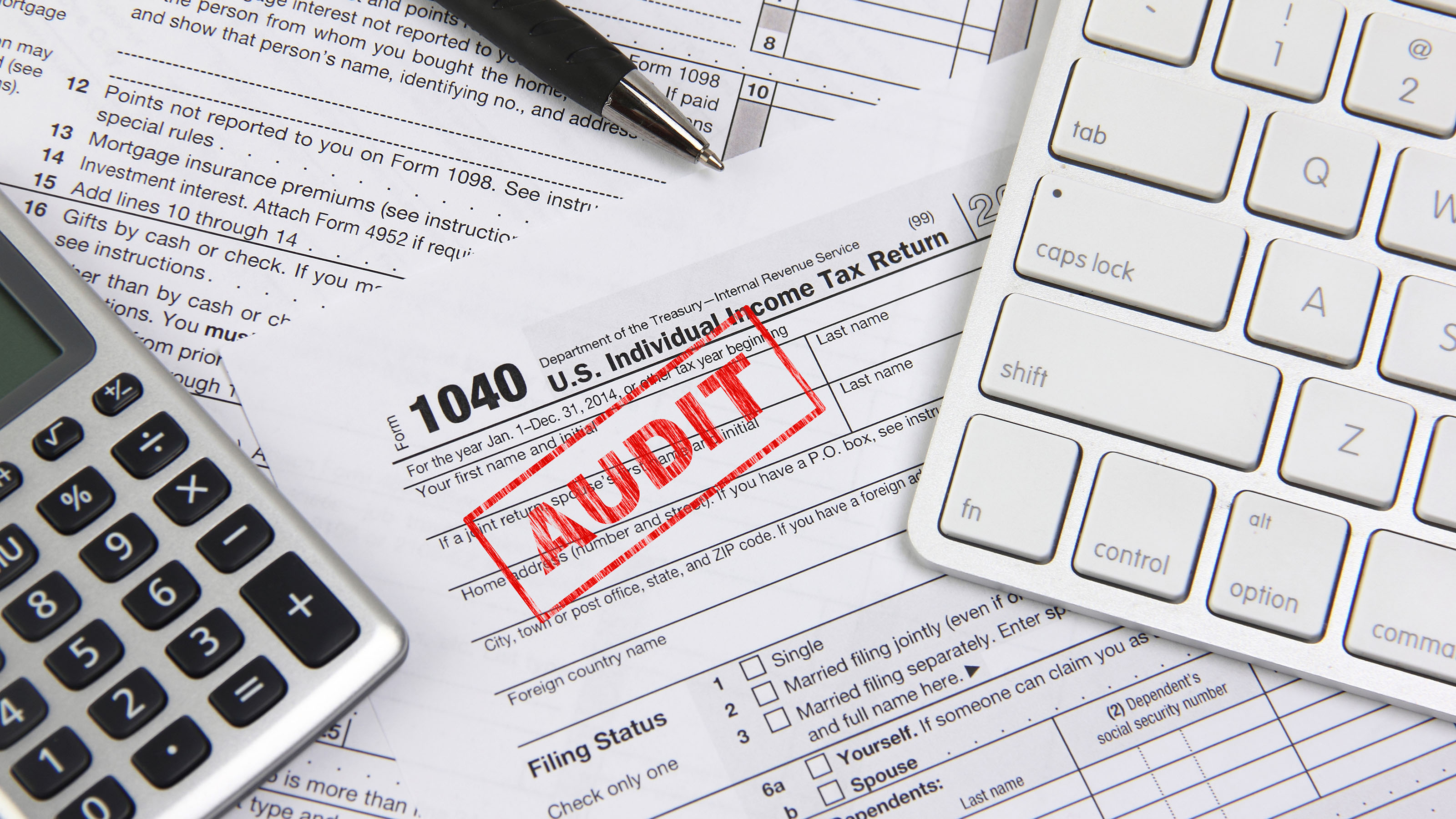 12 IRS Audit Red Flags for the Self-Employed
12 IRS Audit Red Flags for the Self-Employedtaxes If you are self-employed, minimize the odds of an IRS audit by avoiding these audit triggers.
-
 Business Cost Outlooks for 2022: Eight Key Sectors
Business Cost Outlooks for 2022: Eight Key SectorsEconomic Forecasts What’s in store for all sorts of business costs in 2022?
-
 PPP Loan Basics for Small Business Owners
PPP Loan Basics for Small Business OwnersCoronavirus and Your Money Although uncertainty and confusion have surrounded the Paycheck Protection Program since its launch, that shouldn't stop small business owners from participating in the loan program, which was just extended to May 31.
-
 Add a VPN to Surf the Internet Safely
Add a VPN to Surf the Internet SafelyTechnology To help you fight identity theft, consider adding a VPN.
-
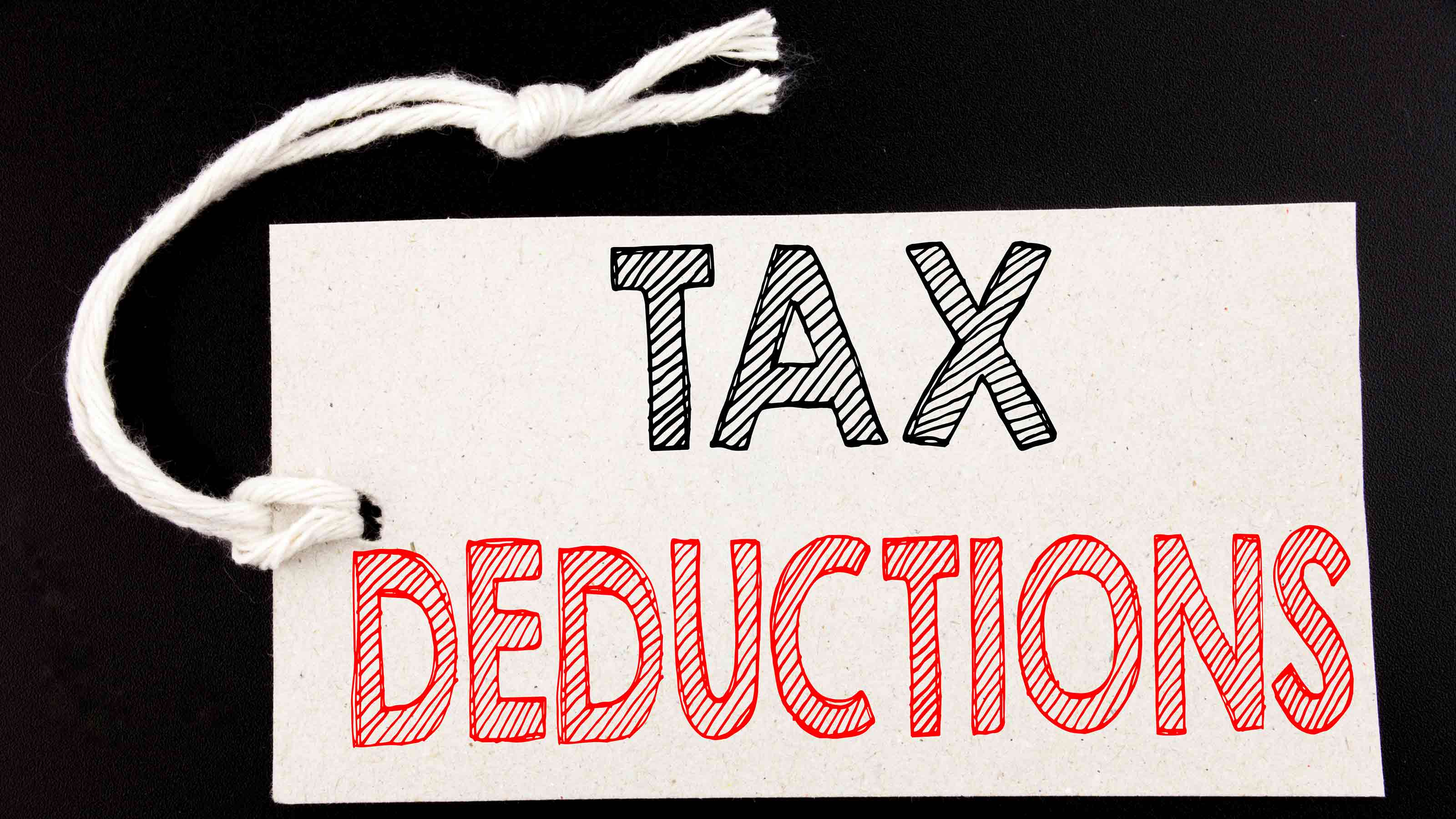 "Above-the-Line" Deductions for Your 2021 Tax Return
"Above-the-Line" Deductions for Your 2021 Tax ReturnTax Breaks If, like most people, you claim the standard deduction instead of itemized deductions on your return, there are still many other tax deductions available that could save you a lot of money.


